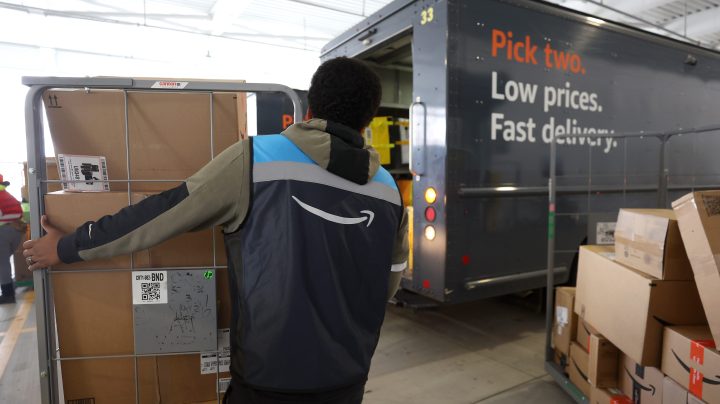
This year, it’s inflation, not contagion, that’s driving online commerce
This year, it’s inflation, not contagion, that’s driving online commerce

In the United Kingdom, Canada and other countries, Monday was Boxing Day — basically the second day of Christmas.
For the American consumer, you could call Dec. 26 “Re-Boxing Day” — the day we put the sweater that’s a few sizes too big back in the box to be returned.
In the last two years, a rapidly increasing share of those boxes were shipped after e-commerce transactions. Consumers spent a record $9.1 billion in online shopping on Black Friday this year.
But the tug of war between brick-and-mortar and online shopping isn’t over just yet.
At the start of the pandemic, we shopped online mostly because the mall seemed like a really bad place to be. (Even if it did have an Orange Julius.)
This year, we’re still shopping online, in part because of inflation. It’s just easier to compare prices by bouncing around the internet.
“You might have an app that does that for you. You might only ever see the cheapest price online, and that might really drive the way that you shop,” said Taylor Schreiner, who directs Adobe Digital Insights.
While inflation-weary consumers are increasingly online, he said e-commerce isn’t going as gangbusters as it was at the height of the pandemic.
“We saw growth rates in the 20% and 30% range — just massive shifts into the online world. This year, we’re seeing more like mid-single-digit growth,” he said.
Brick-and-mortar retailers are trying to lure customers back by sprucing up their brick and mortar.
“These retailers need to continue to renovate and remodel their stores, which the major big-box retailers — Walmart, Costco, Target — they’re continuing to do that,” said Arun Sundaram with the investment research firm CFRA.
But nicer restrooms and more self-checkout stations will only get you so far, per Greg Portell at the consulting firm Kearney.
Retailers still have to find workers. “The challenge that retailers are having in today’s environment, is how do you actually acquire, train and develop the sales associates you need to have on the front line?” he said.
And in this still-tight labor market, that’s tougher than it used to be.
There’s a lot happening in the world. Through it all, Marketplace is here for you.
You rely on Marketplace to break down the world’s events and tell you how it affects you in a fact-based, approachable way. We rely on your financial support to keep making that possible.
Your donation today powers the independent journalism that you rely on. For just $5/month, you can help sustain Marketplace so we can keep reporting on the things that matter to you.











